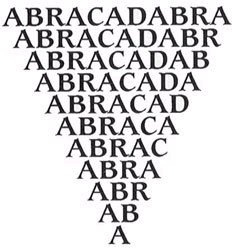“Forescream” is a dance rock song highlighting men’s issues. Go over to bandcamp to download.
Giffy Pop
Gifs like this always excite my auditory cortex; I hear a pulsing rhythm in time with the image switch. I’m not crazy; this is a common enough phenomenon. Do you hear it? The gif below plays at 60 beats per minute like a heartbeat or timeclock.

Live at Snug’s 2/6/15
Breakfast in Fur CD Release Show
Photo Credit: Kaitlin Gallucci
Gif Compression: Los
Phantasm Beats
 Most everyone can find the beat, but can the beat find you? Does the beat sneak up on you and trip you as you’re walking down the stairs? Has the beat ever slide-tackled you off the stage? Or perhaps thrown a cymbal at your head to try and decapitate you?
Most everyone can find the beat, but can the beat find you? Does the beat sneak up on you and trip you as you’re walking down the stairs? Has the beat ever slide-tackled you off the stage? Or perhaps thrown a cymbal at your head to try and decapitate you?
Everyone can follow the beat to some degree; even deafies and the rhythmically-challenged end up locked in the world’s ubiquitous groove. Just let it penetrate your open ears and entrain your brain, so you can comfortably bop your head along. We are ‘children of the riddim’ after all; our hearts kick like kick-drums at an even pulse of 60 beats per minute.
However, after playing drums for several years, I find it hard to forgo the beat, if I were so inclined. I long for that blissful ignorance of the novice, stranded in a chaotic sea of time and sound with nothing to hold onto.
So, we let the beat find us by letting go and losing the beat. We set it free. What professional musicians call “to be tripped up,” similar to that feeling of a phantom step at the end of a staircase. Author Vladimir Nabokov describes this childlike experience in his autobiography Speak, Mnemosyne.
Another part of the ritual was to ascend with closed eyes. “Step, step, step,” came my mother’s voice as she led me up—and sure enough, the surface of the next tread would receive the blind child’s confident foot; all one had to do was lift it a little higher than usual, so as to avoid stubbing one’s toe against the riser. This slow, somewhat somnambulistic ascension in self-engendered darkness held obvious delights. The keenest of them was not knowing when the last step would come. At the top of the stairs, one’s foot would be automatically lifted to the deceptive call of “Step,” and then, with a momentary sense of exquisite panic, with a wild contraction of muscles, would sink into the phantasm of a step, padded, as it were, with the infinitely elastic stuff of its own nonexistence.
I’ve always loved songs that can evoke this phantasmal feeling, either through an odd-time meter or the lack of rhythmic context. The latter can be heard in the Phish song “It’s Ice”.
The guitar riff seems to begin on the One, but it actually doesn’t. The drums enter on an off-beat fill, which makes for a brief delicious moment of rhythmic chaos, before the drums settle into a syncopated 4/4 beat. The phantasmal feeling remains for the next bar or two, washing over us like a wave, while we realign ourselves to the correct beat. (Also, notice the Benny Hill bass-line.)
A recent example of an odd-time phantasm can be heard in “Hack or Shack” by the Argentinian band Fernandez 4. The piano and vocals sound like they’re on the beat, but they’re actually playing a polyrhythm of dotted quarter notes, floating atop three measures of 7/8 time, which is the backbeat defined by the entrance of the drummer.
One measure of 7/8 = 14 semiquavers
Fourteen dotted quavers = 42 semiquavers = three measures of 7/8
Can you think of any musical phantasms that trip you up or throw you off? Please put them in the comments below.
Abracadabra
 Abracadabra is a magic word used to cure diseases for centuries, traditionally written in an inverted triangle and worn as an amulet. But what if we wanted to make a musical amulet out of the word?
Abracadabra is a magic word used to cure diseases for centuries, traditionally written in an inverted triangle and worn as an amulet. But what if we wanted to make a musical amulet out of the word?
I have always been impressed with words that can be played as music, called musical cryptograms. Composers in the Baroque Period began using cryptograms to sign their name into their compositions. Here is Bach’s name as a musical cryptogram (B, A, C, H is German B).
So in traditional musical cryptogram fashion, we can drop the Rs in abracadabra and use the relevant remaining note letters to make our cryptogram. Drag over the noteheads to listen to the tones, or press play to hear the incantation as it would be sung in church.
In Aramaic, it translates to “I create as I speak.” In Hebrew, it is the Father, Son, and Holy Spirit. In mnemonics, it is the first 4 letters of the alphabet, A-B-C-D.
In music, abracadabra is in the key of A minor.
British intelligence man and black magic beast Aleister Crowley was way into abracadabra but he believed the true form to be “abraHadabra.” For this spelling, we can replace the C with the German H (B) in our cryptogram, although the above is more musically satisfying.
Our musical amulet is now complete and ready to be worn around your neck. Here ya go.
Begone demonic sickness…
Ewok melodies
 The Ewoks get a lot of shit for being toy bait teddy bears that sold out Star Wars™ to the baser taste of children, but I never had a problem with them. Unblinking bastards that only served to disnify the original trilogy—but those guys are ok with me. Maybe that’s because I was just a child when Return of the Jedi came out, and I always wanted to be this guy when I grew up.
The Ewoks get a lot of shit for being toy bait teddy bears that sold out Star Wars™ to the baser taste of children, but I never had a problem with them. Unblinking bastards that only served to disnify the original trilogy—but those guys are ok with me. Maybe that’s because I was just a child when Return of the Jedi came out, and I always wanted to be this guy when I grew up.
Anyway, Ewoks religiously chant a perfect fifth backwards, and their aboriginal music is the usual Fraggle Folk Rock—skin drums, bone flutes, and electric funk bass. Their victory song “Yub Nub”, meaning “freedom”, closes out Episode VI.
“Yub Nub” has a funky meandering bass, a chromatic hook from Sesame Street, and this awesome Aeolian cadence at the chorus.
The bVI bVII I chord progression is a popular musical device used to add some epicness at the end of a song. Beyoncé did it at her POTUS Banner. Phish do too. Focus as well. And composer John Williams also does it, because he’s an epic Hollywood kind of guy.
“Yub Nub” is in the key of G Major, but ends with a transitional Eb Major chord to segue back to the Main Theme. A fleet of minor sixes heralds the key change from G Major to Eb Major and the return of the trademark fanfare.
In the Special Edition, they replaced the classic muppet finale “Yub Nub” with a polished studio instrumental, but the Ewoks are a simple people without reverberated panflute and modern day percussion; they are supposed to sound like a ragtag bunch of Henson creature shop rejects. That’s why they have a makeshift xylophone made from the helmets of dead stormtroopers. The music is gritty and real, like ‘practical effects’, compared to the ‘CGI’ of the newer song (which I won’t bother linking to).
There are so many retconned versions of the original Star Wars floating around, it’s hard to find the scene in question, so here it is.
Best for the artist to let his work die in a bittersweet fire just as Luke Skywalker laid his father to rest. Allay loo ta nuv.
Bada Bing Bada Boom
 Italian Americans like to imitate drum beats when they talk. Capeesh? Kapow! Badumcha. They speak a kind of Percussionese dialect, refusing to integrate into their host country.
Italian Americans like to imitate drum beats when they talk. Capeesh? Kapow! Badumcha. They speak a kind of Percussionese dialect, refusing to integrate into their host country.
Such is the phrase “Bada Bing Bada Boom” which means a “job well done” and according to my dictionary, is diminutive of a drum roll. But I ain’t never heard no drum roll sound like this. Drag over the black stemmed noteheads.
Clearly, the phrase is diminutive of the above beat: two semiquavers of snares followed by a bell-and-kick quaver, another two semiquavers on the snare, and finally, a tom-tom flam. A very uncommon drum fill that no drummer would ever play. I doubt it’s ever been played before, until now, when you just dragged over my widget. The “bing” is on Beat 1, following the anapest groove in poetry, like the canter of a horse, or the common hand jive.
Nobody really knows the etymology of the phrase “Bada Bing Bada Boom”, but it was popularized in the ’70s by The Godfather.
Compare the Bada Bing! to the mystic drum beat which haunts me lo these many years.
Sometimes the phrase has extra Italian syllables thrown in, like grace notes on the snare drum: “abada bing abada boom.” Try it now at home on your lap and mouth!
Holy Roman Melodies

Welcome new friends.
This is now a Christian music blog, even though the Devil hast the best tunes. This blog has converted to Christianity, so no more tritones or synthetic scales. And no more Rock ‘n’ Rolla either. From now on, it’s all potato chip potato chip up in here.1
Behold and hearken the sacred song of the Roman Catholic Church!
From the Liber Usualis2, a book of thousands of chants for the Mass and Divine Office, the above chant is sung antiphonally. Each phrase follows the interval of a Minor Third from the Root to the Sixth. The Latin lyrics translate to: “The Lord be with you / And with thy spirit.”
It bears some resemblance to the plainsong of birds—a small common interval in call-and-response. Perhaps this is where the Church came up with it. I don’t know; I’m not really religious. It also sounds like the child’s call “Olly Olly Oxen Free”.
I have no idea how popular the Minor Third chant is, but this seems to be the one that gets parodied a lot and it’s the one I always think of.
God bless you reader, and God bless this blog.
Ora Pro Nobis
Notes:
[1] “The Potato Chip Song”
[2] Liber Usualis



